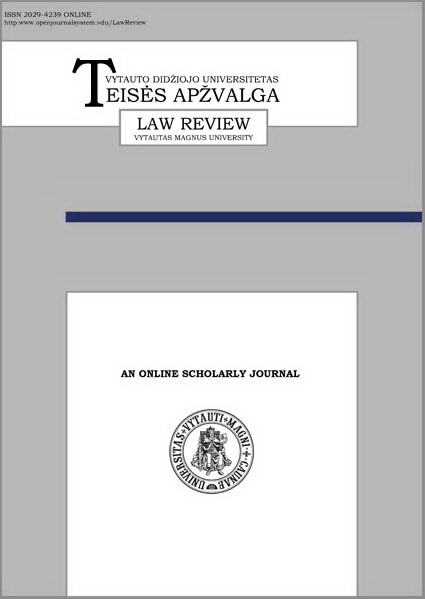Body Donation Laws and Practices Within the Perspective of Future European Taphonomy Research
Body Donation Laws and Practices Within the Perspective of Future European Taphonomy Research
Author(s): Agnieszka Froch, Katarzyna OsmendaSubject(s): Law, Constitution, Jurisprudence, Health and medicine and law, EU-Legislation, Sociology of Law
Published by: Vytauto Didžiojo Universitetas
Keywords: Whole body donation; Decomposition facility; Taphonomy research; Body donation program;
Summary/Abstract: Authors of this article discussed different body donation laws and practices on the example of two selected countries conducting the decomposition research – the United States and the Netherlands, and one country where such an initiative still remains unlawful – Poland. The formal-dogmatic approach with both the legislative and secondary sources research has been applied by the Authors hereinafter. In 2023, Authors of the paper conducted a preliminary research at the Forensic Investigation Research Station (FIRS) in Grand Junction, Colorado, with a purpose of assessing the viability of a decomposition facility in Poland. Various legal solutions regarding whole body donation were investigated in order to highlight their strengths and weaknesses, not only within the perspective of future taphonomy research, but also as for one’s autonomy. Each section of the paper explores the legal basis for body donation and body donation programs (BDPs) of different universities. Section one of the article provides a general understanding of organ and tissue donation, as well as whole body donation. Part two refers to body donation in the United States and includes the analysis of the Revised Uniform Anatomical Gift Act and body donation program on the example of the FIRS. Part three explores body donation laws in the Netherlands, as well as body donation program of the Amsterdam Research Initiative for Sub-surface Taphonomy and Anthropology (ARISTA). Section four, on the other hand, not only introduces Polish body donation laws, such as the Cemeteries and Burial Act or selected orders of the Ministry, but also presents general characteristics of medical universities BDPs and their most common provisions. Finally, after comparing presumed consent and informed consent legal frameworks, authors draw the conclusion about the (in)sufficiency of body donation laws in Poland, and highlight the necessity to increase social awareness as regards both body donation issues and taphonomy research itself.
Journal: Teisės apžvalga
- Issue Year: 2024
- Issue No: 1(29)
- Page Range: 64-85
- Page Count: 22
- Language: English

